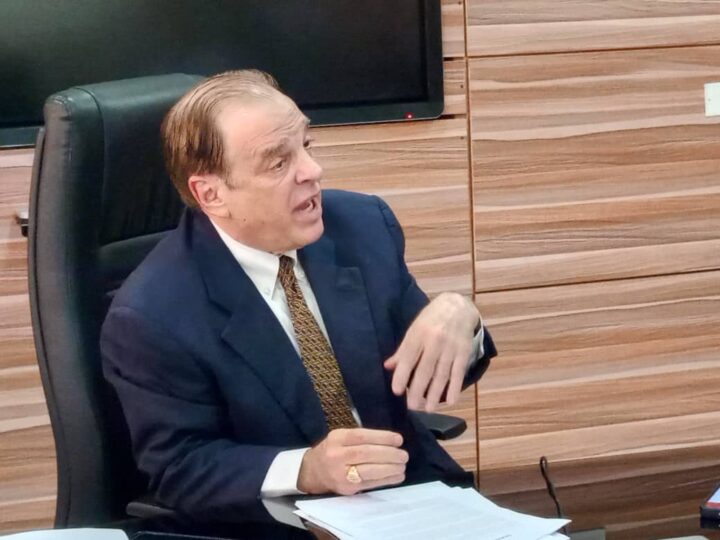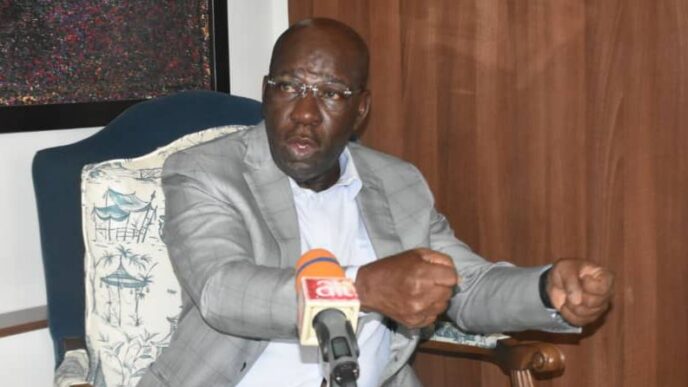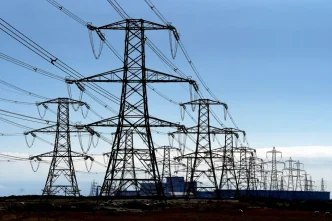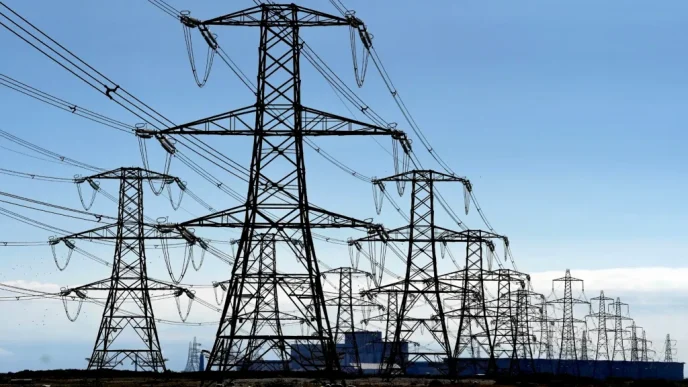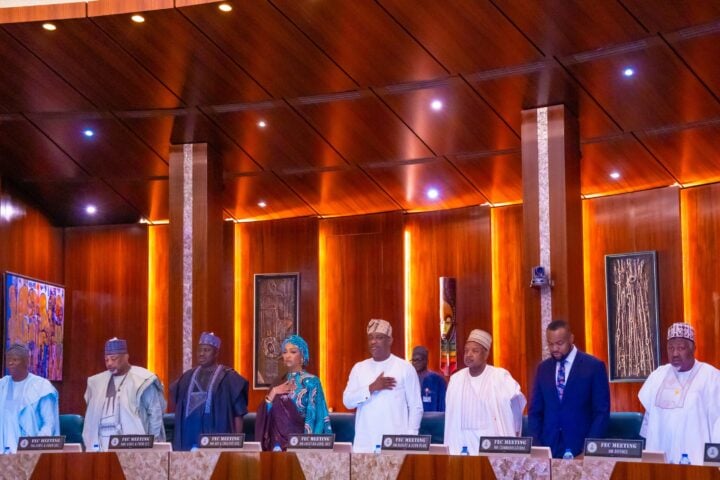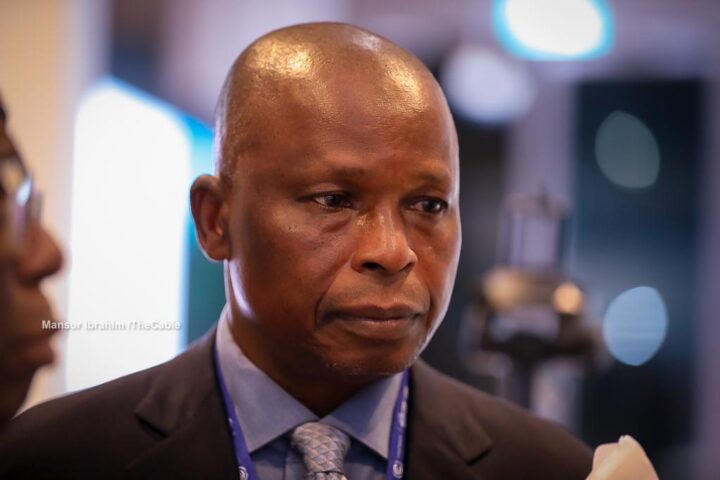Robert Dickerman, chief executive officer (CEO) of Pinnacle Oil and Gas Limited, at a news conference in Lagos on November 7, 2024
Pinnacle Oil and Gas Limited has provided clarification on its pipeline connection agreement with the Dangote Petroleum Refinery, calling for collaboration among industry players to curb the distribution of substandard petroleum products.
On November 3, the Dangote refinery alleged that an international trading company had hired a depot facility close to its plant to blend substandard products.
The refinery later said it rejected a request from Pinnacle to extend a pipeline from its refinery to Pinnacle’s tank farms, which would allow the blending of its high-quality products with Pinnacle’s imported products for sale in Nigeria.
In a statement on November 7, Robert Dickerman, chief executive officer (CEO) of Pinnacle Oil and Gas Limited, denied the allegations, stating that the firm would never engage or attempt to import or distribute any off-spec or substandard product into the Nigerian market.
Advertisement
‘DANGOTE REFINERY SIGNED 13-YEAR AGREEMENT WITH US ON PIPELINE DISTRIBUTION PROJECT’
Speaking specifically on the alleged blending facility and the pipeline agreement at a news conference in Lagos on Thursday, Dickerman said the terminal was built to significantly enhance the efficiency of petroleum products distribution across Nigeria.
“Pinnacle Oil & Gas built a revolutionary terminal in Lekki Free Zone at great expense for the benefit of far greater efficiency in the distribution of petroleum products throughout Nigeria,” he said.
Advertisement
“Prior to the Pinnacle terminal, all imported cargo had to be transferred to smaller vessels due to the shallow draft restrictions across Nigerian ports.
“This extra vessel charter, along with the associated costs of delay, has been inflating the delivered cost for many years.
“With the Pinnacle terminal, full cargoes can offload in less than 40 hours and sail away without any ship-to-ship transfer or delays. This has been working extremely well for the country since operations began in 2021.
“In our effort to further enhance distribution efficiency, we proposed and invested in pipelines to distribute petroleum products from the Dangote Refinery, as pipeline transfer is far less costly than distribution by ship or trucking across the country.
Advertisement
“When we proposed this project to Dangote, they wholeheartedly agreed and signed a 13-year interconnection agreement with us.
“In addition, Dangote facilitated our process of achieving regulatory approval by writing two Letters of No Objection to the regulator to enable our project to proceed.”
‘MARKET-BASED SYSTEM SOLUTION TO NIGERIA’S ENERGY SECURITY, PRICING’
Dickerman said it is unfortunate and “deeply concerning” that the refinery’s press release contained several defamatory, inaccurate, and misleading statements, and advocated for a national policy that would cause severe economic damage to Nigerians by “raising the cost of petrol above global market prices and higher than they are today”.
Advertisement
The CEO said it is Pinnacle’s position that the optimal solution to Nigeria’s energy security and pricing is a market-based system that encourages all sources of supply, “be they from local refineries, imports or any other source”.
He said the suppliers must adhere to the strict specifications of the market and the product must be handled safely.
Advertisement
“But the consumer should be indifferent to the source of supply, as long as the product is good quality, and the price is the lowest attainable. This solution demands competition,” Dickerman said.
“The Nigerian system of distribution could be more efficient, with working products pipelines and terminals near large demand areas, but given the infrastructure we have, it works quite well.
Advertisement
“There are well over 100,000 people working in this sector in Nigeria, operating vessels to every working port, operating storage terminals, driving trucks to filling stations, operating retail stations and providing customer service.”
‘REGULATOR, MARKET PLAYERS MUST WORK IN TANDEM TO CURB DELIVERY OF SUBSTANDARD PRODUCTS’
Advertisement
Dickerman advised the refinery to utilise the existing system and keep prices at market levels to avoid supply disruptions and price shocks.
He said there is no need to recreate the distribution network where every truck must load at one point for the entire country.
“Our previous release made clear that imports do not equate to substandard or off-spec products, and there is no reason to believe that products refined in other countries would be of any lower quality than those refined here,” the Pinnacle boss said.
“Again, the regulator and all market participants must work in tandem to ensure that no substandard product is ever delivered to customers.
“We wish the Dangote Refinery well and expect that with all their options for sales and distribution, they will find it simple to compete at market pricing and make a healthy return for their investors.”
Dickerman said this would encourage further investment in refining, storage, and distribution, making Nigeria an efficient global trading hub and an example for other markets around the world.
Add a comment
